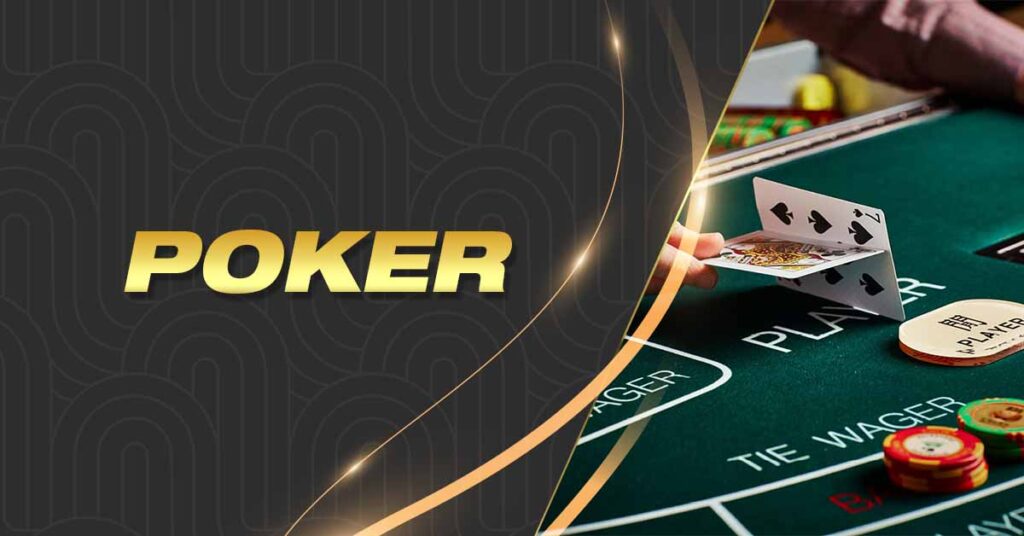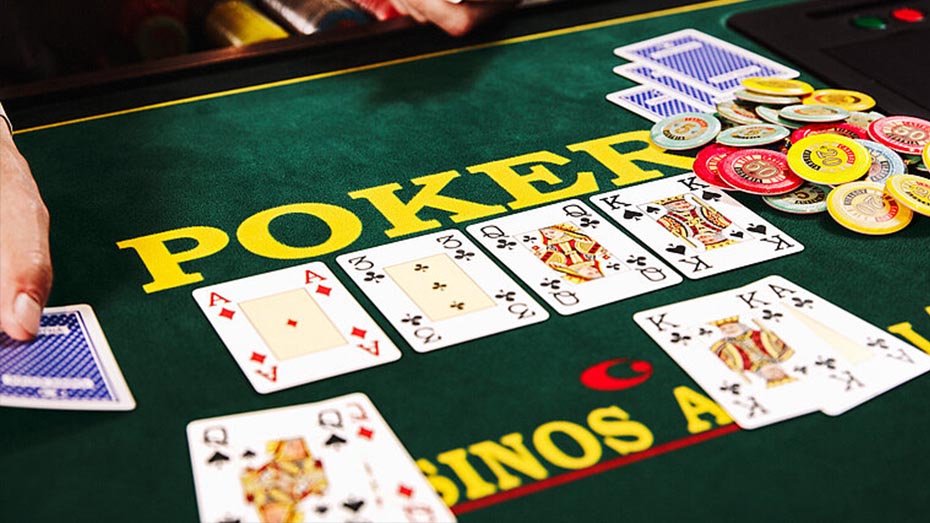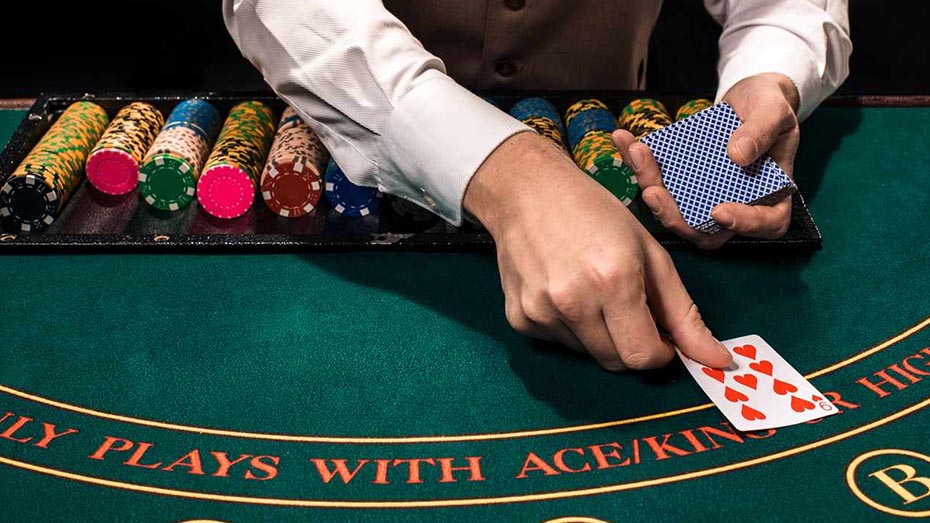A Beginner’s Guide to Getting Started in Live Poker

This guide will explore the ins and outs of poker, a card game people worldwide enjoy. Understanding the fundamentals of poker is critical to becoming a successful player. Whether you’re a beginner or someone who has played before, this guide aims to help you understand the game better so you can enjoy playing and improve your skills. Let’s explore the world of poker together!
Understanding the Basics of Poker

It is a game where you use skill and strategy. You play with a standard 52-card deck. The aim is to make the best hand using your hidden cards and the cards everyone can see. When the cards are revealed, the person with the best hand wins the prize.
The Setup
Here’s how the Setup works:
Blinds: Two players next to the dealer put in small and big forced bets. It starts the betting and adds money to the pot.
Hole Cards: Each player gets private cards face down. These are called hole cards and are the main part of your hand.
Betting Rounds: Players decide what to do in different betting rounds. They think about their cards and possible combinations.
Community Cards: Some cards are put face up in the middle of the table. Players use these with their hole cards to make the best hand.
Showdown: If more than one player is left after the last betting round, there’s a showdown. The winner is determined when everyone raises their hands.
Poker Hands: Rankings and Combinations
Know your poker hands! It’s crucial for your success. Here’s a quick rundown of the standard from highest to lowest:
Betting Rounds and Actions
The betting part is when you make decisions. Here are the main things you can do:
Check: Say no to betting and let the next player decide.
Bet: Put some money in, following the table rules.
Raise: Add more money to the bet someone else made.
Call: Put in the same amount of money as the current bet.
Fold: Give up your cards and lose the chance to win the money in the middle.
Essential Etiquette and Table Manners for a Successful Game

Respect for Other Players
Being nice to other players is important for a successful game. It means more than just following the game rules. It’s about making the game enjoyable for everyone at the table. Don’t be mean to opponents if they make a bad move, don’t brag too much, and don’t act unsportsmanlike. Instead, try to be friendly by being respectful and treating others the way you want to be treated. And remember, no copying!
Maintaining Focus and Avoiding Distractions
Playing card game requires you to pay close attention and stay focused. Distractions can mess up your game and bother others at the table. Be careful with what you do—don’t take too long to make decisions, don’t use your phone too much, and try to talk less when it’s time to play. It helps the game go smoothly and respects your opponents’ time and focus. And remember, no cheating!
Acting in Turn and Handling Chips Properly
Play this in order. Wait for your turn, and don’t move too early or too late. It keeps the game running smoothly. Be careful with your chips and respect the game and other players. Don’t throw chips into the middle carelessly; keep your chip stack neat for easy counting. It helps everyone play without problems.
Avoiding Excessive Celebration or Complaints
Keeping your emotions balanced when you win or lose is important. Celebrating too much or complaining can disturb the game atmosphere and make other players uneasy. Acting calmly, whether you win or lose, shows good sportsmanship and makes the gaming environment more enjoyable.
Graciously Accepting Defeat and Victory
How you act when you win or lose shows what kind of person you are. Be polite and respectful whether you win or lose. If you lose, say a good job to your opponents, and if you win, don’t brag too much. Doing this makes the game more positive and helps everyone get along.
Tips and Tricks for Beginners

Learn About Poker Bluffing
If you think the other player doesn’t have good cards, you can make them feel pressured by betting and raising. It is like using the poker rules to your advantage. It means you know the rules well enough to play the game.
When you bet and raise a lot, the other player might realize their cards aren’t as good as yours. Your bold moves make it seem like you have a strong hand.
This strategy is called bluffing. It lets you act like you have a good hand, even if you don’t. It’s a mix of knowing the poker rules and having a plan. You use the other player’s understanding of the rules to help you win. Just remember, bluffing works before the final reveal of cards. In the end, the player with the best cards wins.
Play the Easiest Poker Variants
Texas Hold’em is a fantastic poker game for beginners because it’s simple to pick up. Besides being easy, it lets you be creative, especially in games with no limits on betting or raising (known as No Limit). Other poker games that are easy to understand are Draw and Stud.
Develop Skills to Play Poker Like a Pro
To play well, you need to think about your cards and what your opponent might have. Poker players usually go through four stages of getting better – from thinking about the simple stuff to making moves based on their opponent’s actions.
To get good at playing poker, follow these four steps:
If you notice someone usually folding when they’re stressed in poker, don’t worry much about your cards; keep betting. On the other hand, if you have a good hand and know the person tends to fold under pressure, don’t bet too much.
To be good at poker, you’ll often need to adapt to your cards, what you think your opponent has, and how they usually play.
Manipulate Other Players in the Game
Playing poker requires a lot of skill. Winning big prizes doesn’t just depend on having the best cards; it’s also about making others give up.
Having the best poker hand is mostly luck because the cards are randomly dealt. You might get good cards or not; even if you have a strong hand, someone else might have a stronger one. These things are beyond your control.
But when it comes to making opponents fold, that’s up to you. You can’t control the cards they get, but you can control how you assess the situation and the pressure you put on them.
The key to being good at poker is knowing your own cards and understanding your opponents. Pro players pay attention to your moves as much as their own. They try to figure out what cards you have to decide how to respond.
Poker is a game of skill with a bit of luck. That makes it exciting, and if you learn how to play well, it can be profitable at a physical casino or an online poker site.
FAQs
Conclusion
In conclusion, mastering poker involves learning the rules, understanding hand rankings, and developing strategic skills. Practicing patience and observing opponents while playing at Winph Casino is essential, and you can apply these skills in a fun and challenging environment. The comprehensive guide provided insights into the game’s nuances, helping players navigate the exciting world of poker. So, whether you’re a beginner or an experienced player, Winph Casino offers a platform to test and enhance your poker prowess.





